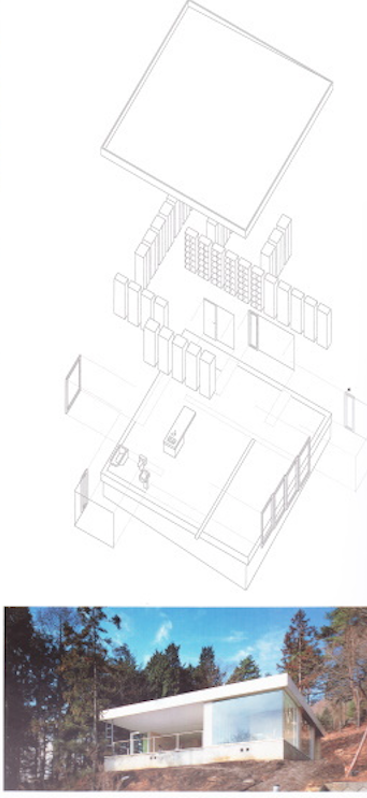MODULAR
—“Once we had the ‘fit for purpose framework’ it proved to be quite useful not just in the output end – but also in the input end. It truly works in the way Tikvah explained with cadasters – we can incorporate changes, epiphanies and more transformations from the research team, whilst the whole of the framework stays intact, and we can easily create modules. It’s quite clever!’
Project manager collaborating with StudioBlended
‘The need for modular programs and personalised learning paths that cater to the needs and interests of students, is becoming increasingly apparent. This development leads to the creation of more flexibly designed learning environments, both physically and virtually. These approaches enable students to pursue their education at a time, pace of study, and location that suit their own needs and interests.‘
Future Campus (2040) trend report 2023.
Adaptability is our ability to bend and come back to center over and over again, increasing our flexibility each time.
Esther Perel
Are you curious for more? Would you like to get in touch? Feel free to contact our lead directly for any questions or inquiries you may have. Tikvah Breimer (MSc MAEd MSc) tikvah@studioblended.com +31 6 42 47 29 69

Photo: An open building framework for a house in Japan, Tokyo by Shigeru Ban (1995). Staib, Gerald, Dorrhofer, Andreas & Markus Rosental 2008, Birkhauser. Edition Detail. Components and Systems, p. 132. With thanks to the Netherlands Architecture institute’s library.
SYNOPSIS
(Follows)VIEW PDF (OPEN SOURCE)
(PDF image and link follows soon 2026)© Copyright Tikvah Breimer, STUDIOBLENDED
AUTHOR BIOGRAPHY
See Tikvah Breimer (MSc MAEd MSc)
KEYWORDS
Higher Education, Constructive Alignment, Modular, Technical, Educational Design.
LICENCE
This work is licenced under the Creative Commons Attribution 4.0 International Licence.
HOW TO CITE
Breimer, T. (2026) Modular. STUDIOBLENDED. Available: LINK (follows)
THINKPIECE
Why not read our Thinkpiece (2 pager) - forthcoming (2026), to discover more?MODULAR / OPEN BUILDING
This text is underway.RELATED PUBLICATIONS

Our lead and founder, takes a lively interest in architecture, and made an extensive exploration of the open building approach in architecture (with distinction) at the Institute for Housing and Urban Management (IHS) of Erasmus University Rotterdam.
OUR FINITE SET OF DESIGN ANGLES
Technical resilience
Big ideas
Paradigm shifts/decade strong
Simplicity and decluttering
Human resilience
Modular
Innovative and deep pedagogy
Assesment / evaluation
Time dimension
Evidence-based design
Financial health and resilience by (re)design
Multi- Inter- and transdisciplinary
Flexibilisation and personalisation
Blended
Resilient education that stands the test of time - by design.
Prefer to have direct contact?
Feel free to contact us:
Tikvah Breimer (MSc MAEd MSc)
Independent senior advisor, teacher trainer, director.
tikvah@studioblended.com
+31 6 42 47 29 69
STUDIOBLENDED Non Profit Foundation
Registration Chamber of Commerce
KvK-number 86242598 (Dutch)
VAT identification number
NL 86 39 07 29 5 B01
Bankaccount
NL40 INGB 0709 6156 04
SWIFT/BIC: INGBNL2A
StudioBlended Foundation
Feel free to contact us:
Tikvah Breimer (MSc MAEd MSc)
Independent senior advisor, teacher trainer, director.
tikvah@studioblended.com
+31 6 42 47 29 69
STUDIOBLENDED Non Profit Foundation
Registration Chamber of Commerce
KvK-number 86242598 (Dutch)
VAT identification number
NL 86 39 07 29 5 B01
Bankaccount
NL40 INGB 0709 6156 04
SWIFT/BIC: INGBNL2A
StudioBlended Foundation
